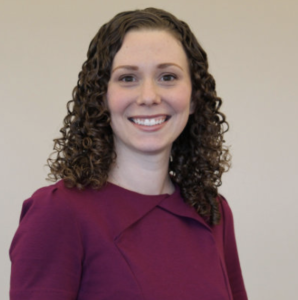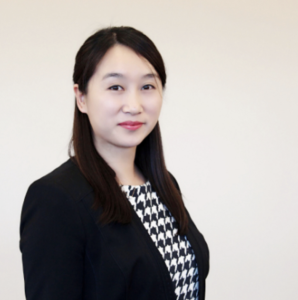Kingston, R.I. — Oct. 4, 2022 — Two University of Rhode Island language professors will receive Research Priorities Grants from ACTFL, a national organization that supports quality teaching and learning of languages at all educational levels.
LeAnne Spino-Seijas, an assistant professor of Spanish, and Yu (Joyce) Wu, an associate professor of Chinese, will both receive up to $3800 for research projects that explore research areas identified as priorities by ACTFL. The two URI projects are among only 11 projects funded nationwide.
 Spino-Seijas’ project seeks to understand why heritage speakers of Spanish do or do not decide to enroll in Spanish classes at the college level. Heritage speakers of Spanish can be described as people who have learned Spanish at home, but completed most or all of their educational experience in English. Spino-Seijas tackles this question by surveying heritage speakers of Spanish and analyzing factors in their responses that predict whether or not they will enroll in Spanish classes. Spino-Seijas says that encouraging these students to take Spanish classes in college could potentially help preserve the Spanish language across generations of Spanish speakers in the United States. It would also help to boost enrollments in post-secondary language classes.
Spino-Seijas’ project seeks to understand why heritage speakers of Spanish do or do not decide to enroll in Spanish classes at the college level. Heritage speakers of Spanish can be described as people who have learned Spanish at home, but completed most or all of their educational experience in English. Spino-Seijas tackles this question by surveying heritage speakers of Spanish and analyzing factors in their responses that predict whether or not they will enroll in Spanish classes. Spino-Seijas says that encouraging these students to take Spanish classes in college could potentially help preserve the Spanish language across generations of Spanish speakers in the United States. It would also help to boost enrollments in post-secondary language classes.
In addition to her professional interest in the project, Spino-Seijas says she has a strong personal interest as well.
“I have a four- and one-year-old who fit the same linguistic profile as many of my students,” she said. “I, of course, hope that they will continue to use and study Spanish when they’re older, so I am also hoping that this project can help me understand why they may or may not make that choice.”
 Wu’s project aims to find new ways of measuring Chinese language proficiency. There are two tools currently used to measure language proficiency: the ACTFL Oral Proficiency Interview (OPI) and the Complexity, Accuracy, and Fluency (CAF) framework. But there are gaps between the more holistic OPI and the more fine-grained CAF, Wu says, and reconciling the two instruments could make for a demystified measure of language proficiency. Wu will work with Qiaona Yu of Wake Forest University to compare OPI and CAF results to find correlations between the two. In the process, the researchers also hope to shed light on how to foster language proficiency in classroom practice.
Wu’s project aims to find new ways of measuring Chinese language proficiency. There are two tools currently used to measure language proficiency: the ACTFL Oral Proficiency Interview (OPI) and the Complexity, Accuracy, and Fluency (CAF) framework. But there are gaps between the more holistic OPI and the more fine-grained CAF, Wu says, and reconciling the two instruments could make for a demystified measure of language proficiency. Wu will work with Qiaona Yu of Wake Forest University to compare OPI and CAF results to find correlations between the two. In the process, the researchers also hope to shed light on how to foster language proficiency in classroom practice.
“Although learners were expected to achieve ‘advanced’ level of proficiency to function professionally, it is extremely challenging for Chinese learners to transition from ‘intermediate’ to ‘advanced,’” Wu said. “So building oral proficiency profiles of ‘intermediate,’ ‘advanced,’ and ‘superior’ learners will fill the gap theoretically and practically.”
Both researchers plan to publish their findings, making them available to educators and other researchers around the world.
